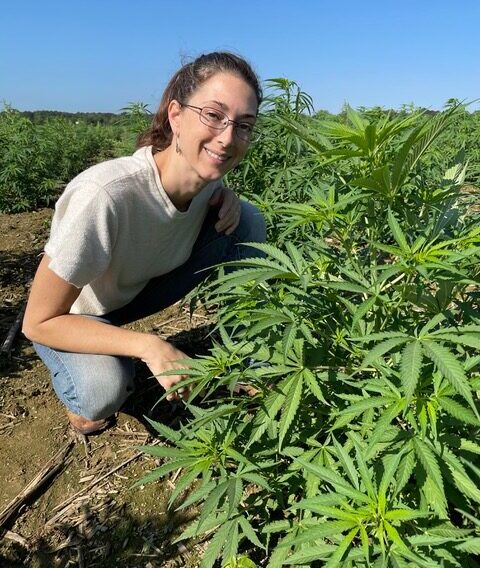5:30
Commentary
Commentary
Kentuckians invited to speak up on hemp regulation, including CBD and Delta 8
A state agency and congressional committee are seeking comment
Over the last few years, hemp’s CBD and Delta 8, a less-potent marijuana alternative, have been sold online and in wellness shops as relief for pain, anxiety and insomnia.
But that could change. A Kentucky agency and a congressional committee are separately seeking comment on how to regulate these products. This is an opportunity for those with experience with them to speak up.
State and federal decisions will help determine if the plant — also used in products as varied as clothing, building supplies and animal feed — could be a financial boost for a state that was a top producer before World War II. The revival effort has suffered from overproduction, the pandemic, legal challenges, lack of federal oversight and limited banking support.

Also, Delta 8, chemically extracted from non-psychoactive CBD, could provide immediate relief to those suffering chronic pain. Medical marijuana?use and sale won’t be legal here until 2025. Currently,?those with?21 medical conditions?are allowed to possess eight ounces. Illinois is the closest state to purchase it.
On Aug. 1, Kentucky became the first state to?draft regulations?for Delta 8. It was in response to a successful lawsuit by the Kentucky Hemp Association which declared the product legal. A state law then called for guidelines to keep it out of the hands of minors.
Some of the Cabinet for Health and Family Services’ regulations — covering production, manufacture, testing and marketing — are too heavy-handed, say hemp supporters. Not every level of cannabinoids requires the toughest restrictions, they say. And packaging and marketing rules outlined are inconsistent with other states, creating problems with interstate sales.
“I think the regulations have good intentions, but they are geared to a marijuana state and would be burdensome for processors and retailers,” said Katie Moyer, president of the Kentucky Hemp Association and owner of a seed and processing facility in Christian County. “It would be difficult for companies in other states to abide by Kentucky regulations. They may have to avoid Kentucky.”

Dee Dee Taylor, CEO of 502 Hemp Wellness Center in Louisville, complained that a testing regime should not be needed for every product, especially since testing is done on bulk ingredients, such as gummies, that go into various products. Also, regulations require customers to show IDs and sign for deliveries. Meanwhile, little is done to stop the sale of psychoactive hemp products at gas stations and convenience stores.
Said Moyer: “The good news is that the cabinet has been open to opinion and communication. I think it’s fixable.”
A Zoom meeting on the regulations is scheduled for 9 a.m. Sept. 25. If interested, notify the cabinet at 502-584-6746 or?[email protected]?by Sept. 18. Deadline for written comments is Sept. 30.
The battle over hemp has also been fought at the federal level. During the nation’s war on drugs, the plant was illegal. After many states legalized the sale and use of marijuana, Congress agreed to legalize hemp in the 2018 U.S. Farm Bill. At least 47 states now allow hemp production.
A key argument for legalization was that hemp did not have enough psychoactive ingredients to produce a high. However, chemists have been able to extract the?cannabinoids?to create new products.
After a lot of back and forth, the U.S. Food and Drug Administration said in January that it had?concerns about the safety of hemp products and would not regulate them in?the foods and dietary supplement?category, which includes botanicals and herbs.?Hemp supporters, objecting to the stalling and the research that led to that decision, asked Congress to put pressure on the FDA.
There is no doubt that the 2018 farm bill made hemp products legal, Jonathan Miller, general counsel of the U.S. Hemp Roundtable, argued during a July 27 hearing before the top House and Senate lawmakers with jurisdiction over the FDA.
“Farmers across the nation relied on this government action, and invested considerable time and resources to plant, grow and market commercial hemp crops, and particularly for the market for which there was immediate processing infrastructure and consumer demand: hemp-derived CBD and cannabinoids,” said Miller, a former Kentucky treasurer.
Some of the lawmakers, from the?House Oversight and Accountability Committee’s Subcommittee on Health Care and Financial Services,?rejected the FDA argument that it needs more time and money to determine another administrative pathway for CBD products.
“The pathway already exists; Congress spoke in 2018. The FDA just needs to do the job that the American taxpayer is paying them for,” saidsubcommittee chair Rep. Lisa McCain, a Michigan Republican. “And if they can’t do their job, maybe we should stop funding them or funding them at reduced levels.”
The committee sought quick, detailed feedback from the hemp industry.?Public comment can be sent to?[email protected]??and?CBD
Regulation — both state and federal — is necessary to not just boost the industry but to protect consumers.?
“Lack of a federal framework has led to the proliferation of unregulated products, some of which raise significant quality, safety and other consumer protection concerns,” said Miller.
Even Taylor, who sells hemp products and worries state regulations could further reduce the number of processors and farmers, recognizes the benefit: “There are states that ban it. I’ll take the regulations.”
GET THE MORNING HEADLINES.
Our stories may be republished online or in print under Creative Commons license CC BY-NC-ND 4.0. We ask that you edit only for style or to shorten, provide proper attribution and link to our website. AP and Getty images may not be republished. Please see our republishing guidelines for use of any other photos and graphics.
Vanessa Gallman
Vanessa Gallman, a Kentucky Lantern freelance columnist, worked for more than two decades as editorial page editor for the Lexington Herald-Leader. She was also a local government editor for The Washington Post and a national correspondent for Knight-Ridder Inc.






Vanessa Gallman